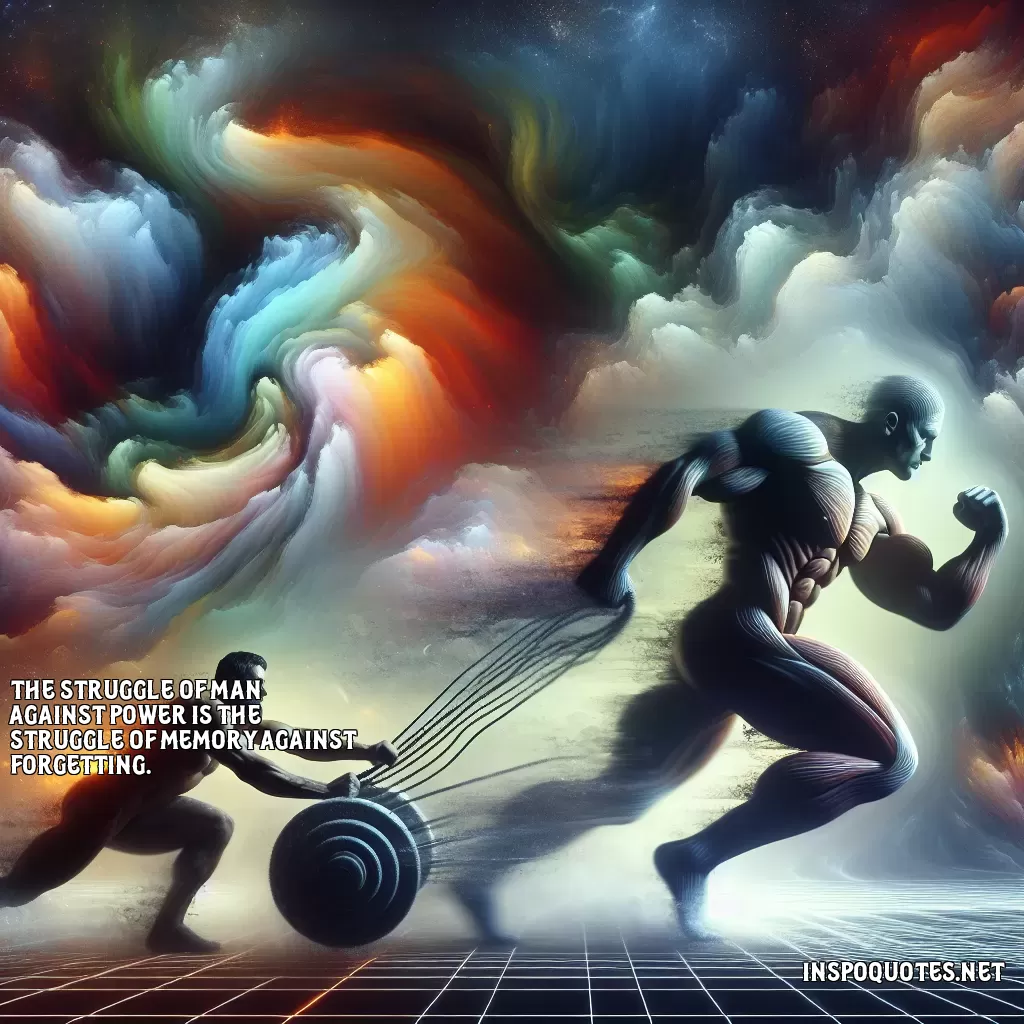
The struggle of man against power is the struggle of memory against forgetting.
Author: Milan Kundera
👁️ 19 views

The struggle of man against power is the struggle of memory against forgetting.
👁️ 19 views
This quote suggests a deep connection between power dynamics and the act of remembering. At its core, it implies that the battle individuals or communities face against oppressive or controlling powers is intrinsically linked to the preservation of memory. Power often seeks to control the narrative and can manipulate or erase memories that do not align with its interests. This can mean rewriting history, suppressing information, or promoting a selective memory that benefits those in power. The "struggle of memory against forgetting" signifies the importance of remembering past events, truths, and experiences that might be inconvenient or threatening to those in authority. Memory serves as a foundation for identity, culture, and resistance. By remembering, individuals and groups are able to maintain their version of events, ensuring that truths are upheld and injustices are recognized. This collective memory can empower action, sustain movements for change, and prevent the erasure of important histories. In broader terms, this quote underlines the role of history, storytelling, and education in empowering individuals to challenge unjust systems. It serves as a reminder that remembering is a powerful act of defiance against attempts to manipulate or silence. The persistence of memory ensures that past struggles inform present and future actions, acting as a bulwark against tyranny.
Quote By: Milan Kundera
Milan Kundera is a renowned Czech-born author, celebrated for his profound literary contributions that delve into themes of identity, memory, and the complexities of personal and political lives. Born on April 1, 1929, in Brno, Czechoslovakia, Kundera grew up against the backdrop of World War II and the subsequent rise of communism in Eastern Europe, experiences that would later inform much of his writing.
Kundera began studying literature and aesthetics at Charles University in Prague and later became involved with the Communist Party. However, as his political views evolved, he grew increasingly disillusioned with totalitarianism, which influenced his decision to leave Czechoslovakia in 1975. His political and artistic exile marked a significant turning point in his life, leading him to settle in France, where he would write most of his subsequent works.
His most famous novel, "The Unbearable Lightness of Being," published in 1984, explores the interconnected lives and philosophical dilemmas of characters against the tumultuous backdrop of the Prague Spring and its aftermath. Through this complex narrative, Kundera examines the concept of eternal return and the burden of existential choices, themes that resonate profoundly with readers. The novel, later adapted into a film, solidified Kundera's reputation as a significant voice in contemporary literature.
Throughout his career, Milan Kundera's works, including "The Book of Laughter and Forgetting," "Life is Elsewhere," and "The Immortal," have gained international acclaim for their innovative narrative techniques and deep philosophical insights. Kundera's writing often blends elements of fiction, essay, and philosophy, challenging readers to confront the intricacies of human existence.
Kundera's literary style is marked by a playful yet profound exploration of life, art, and the fleeting nature of love and memory. Despite the challenges he faced during his lifetime, Milan Kundera remains a powerful figure in world literature, known for his ability to weave intricate narratives that invite reflection on the human condition. Today, he continues to be celebrated not just for his stories, but for the philosophical questions they pose, asserting his legacy as one of the most influential authors of the 20th century.